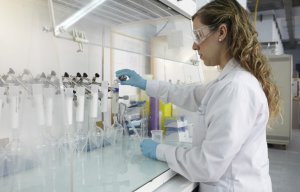
New Oeko-Tex regulations come into effect
The new STeP auditors come from China, Bangladesh, Germany, South Korea, Indonesia, Hong Kong, Denmark, Hungary, and Taiwan.
-408x408-square.jpg)
21st September 2015
Innovation in Textiles
|
Zurich
The new STeP auditors come from China, Bangladesh, Germany, South Korea, Indonesia, Hong Kong, Denmark, Hungary, and Taiwan. In total, the 16 Oeko-Tex Institutes with their contact offices in more than 60 countries now have 80 auditors at their disposal from all of the most important regions of global textile production.
Guided by trainers from the Oeko-Tex Association, the new auditors completed an intensive four-day training programme. During the intensive programme, the auditors worked through the six modules of the STeP certification using practical examples.
Furthermore, the participants also had an opportunity to discuss their different cultural backgrounds and the respective situation of the textile industry in their home countries. The main focus of the training was on the issues of independence, neutrality, and consistency when assessing the production facilities in the textile chain.
The training also covered the everyday handling of the STeP assessment tool, the creation of check lists for the audits, and the drawing up of test reports as a prerequisite for a globally standardised procedure. To ensure consistency, STeP auditors who have not yet done field work at companies are accompanied and guided by an experienced colleague as they begin to put their training into practice.
STeP is an independent certification system for brands, retail companies and manufacturers from the textile chain who want to communicate their achievements regarding sustainable production to the public in a transparent, credible and clear manner. Certification can be obtained for production facilities in all of the processing stages, from fibre production, spinning mills, weaving mills, and knitting mills to finishing facilities and manufacturers of ready-made clothes.
For the STeP certification, all of the areas of the company that were of relevance with regard to sustainable production and social conditions were first analysed using a web-based assessment tool. This included the handling of chemicals and possible hazardous materials, environmental performance measured using a wide range of criteria, the implementation of an environmental management system, company responsibility in relation to employees, efficient quality management and safety in the workplace.
During the subsequent audit of the production facilities, the specifications provided by the company were verified on site by the Oeko-Tex auditors and a detailed audit report was created. The results of the individual areas are collected and displayed together in a clear overall scoring system on the issued STeP certificate.

Business intelligence for the fibre, textiles and apparel industries: technologies, innovations, markets, investments, trade policy, sourcing, strategy...
Find out more